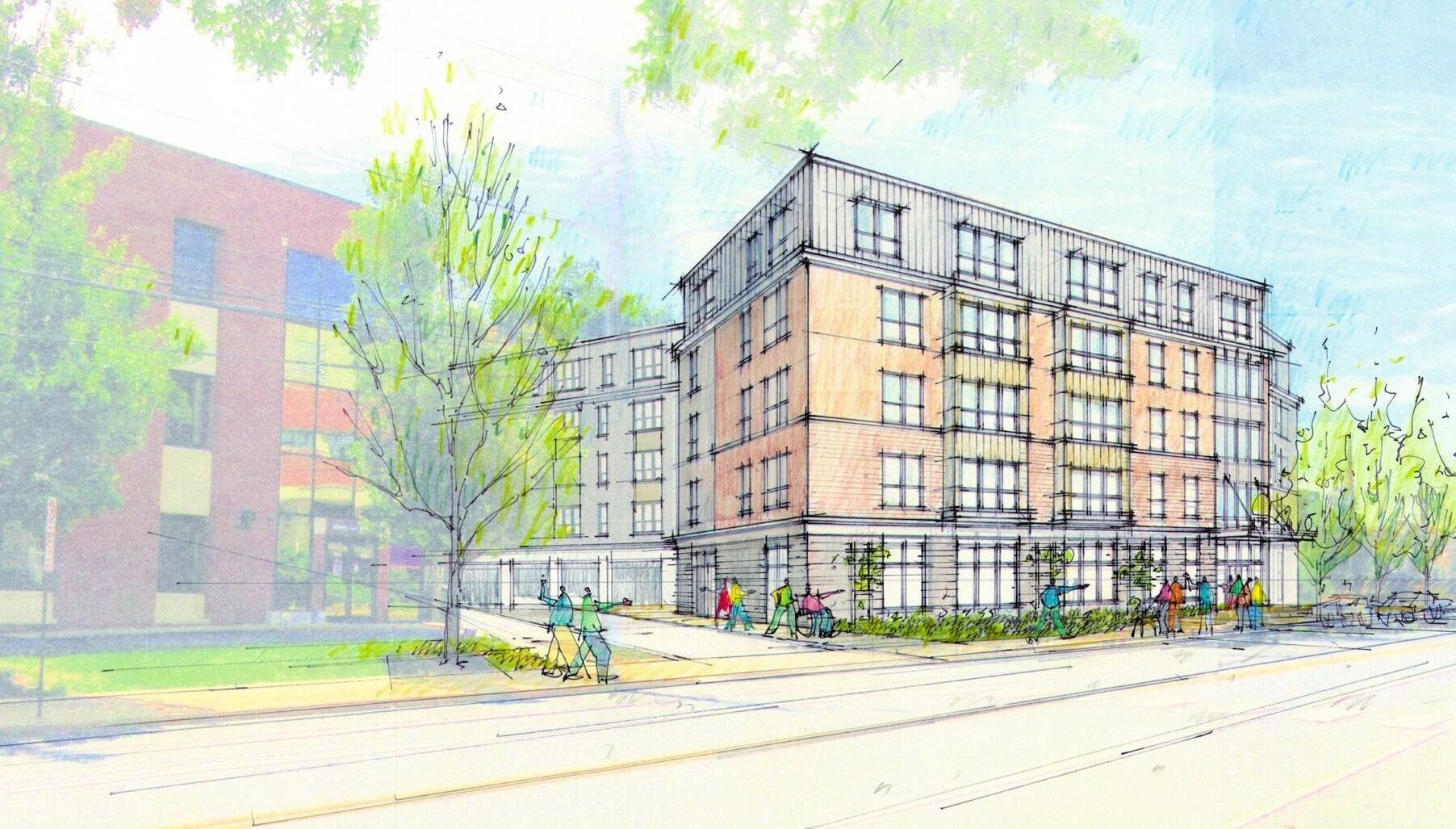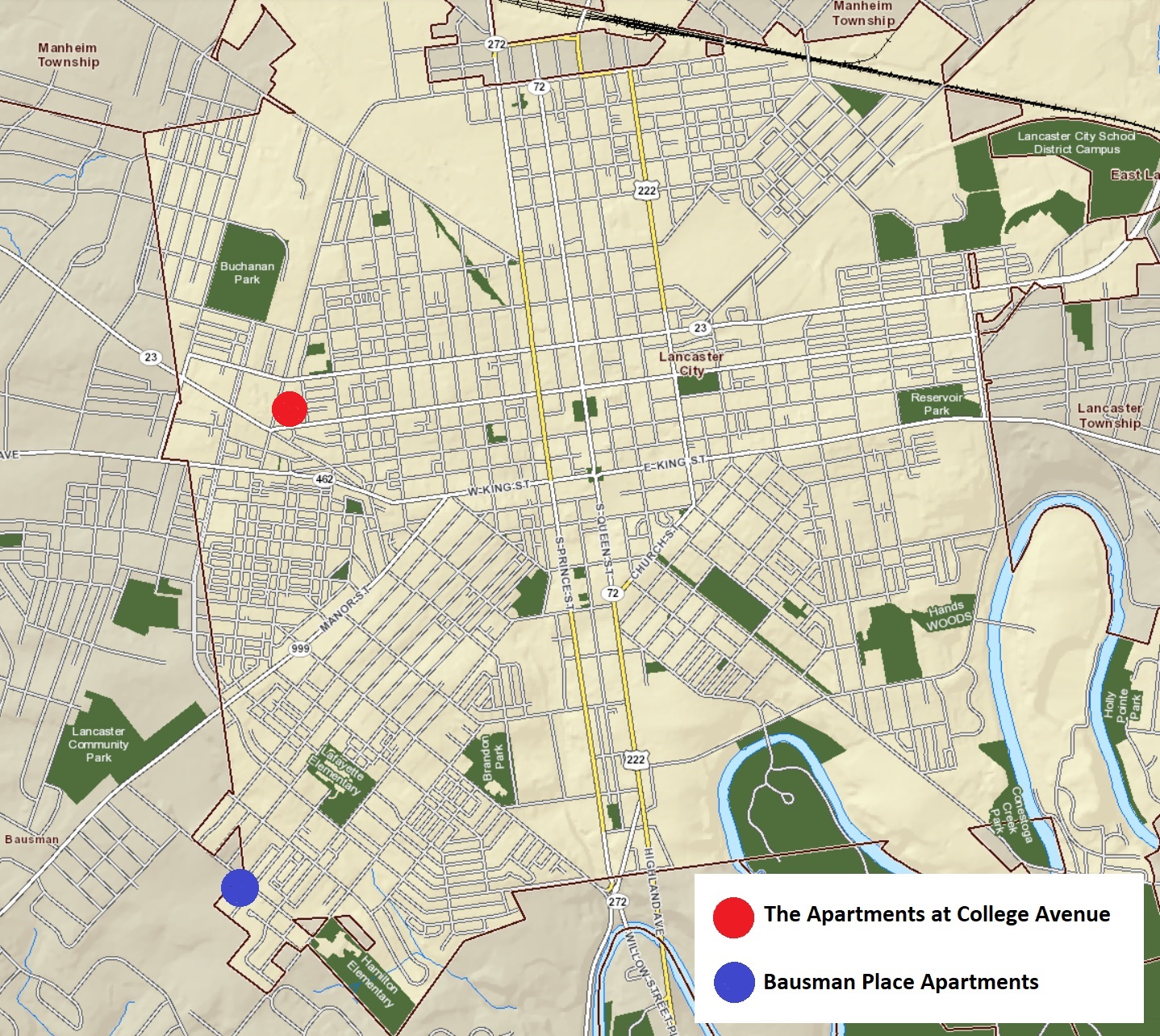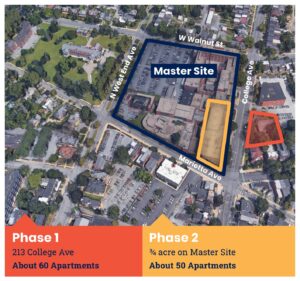
Two significant affordable-housing projects in Lancaster will each receive $1.25 million in federal Low Income Housing Tax Credits to put toward their financing.
HDC Mid-Atlantic's project, The Apartments at College Avenue, and Community Basics' Basuman Place Apartments, are anticipated to add a total of 118 affordable units to Lancaster's stock.
HDC's 64-unit Apartments at College Avenue, a $15.4 million project at 213 College Ave. is expected to break ground in late spring or summer 2022. It is the first phase of an ambitious plan by HDC and Baltimore-based Washington Place Equities to redevelop the former St. Joseph's Hospital site across the street. The property has been vacant since UPMC closed down the hospital in 2019.
Community Basics, meanwhile, is planning Bausman Place Apartments, a 54-unit project on Charles Avenue, straddling the border of the city and Lancaster Township. Executive Director Lisa Greener said it will probably break ground in late 2022 and take about a year. She declined to provide a project cost.
Besides the tax credits, the state awarded Bausman Place Apartments a 0%-interest loan of $525,000 for up to 40 years through the PennHOMES program.
The awards were part of $43.6 million in tax credits and $7.4 million in PennHOMES grants statewide announced last week. The programs are considered extremely competitive.

Affordable housing is an acute concern in Lancaster, as it is in much of the country. Last week, the local Center for Regional Analysis released a report confirming that the city faces a housing shortage, one exacerbated by a mismatch between the city's preponderance of single-family homes and the increasing need for one- and two-bedroom apartments for individuals and single-parent households.
The College Avenue and Bausman Place projects would be the first multi-family affordable housing developments in Lancaster in several decades. Long Crest, a 54-unit affordable housing project just west of the St. Joseph complex, opened in 2020, but is age-restricted: It is for seniors aged 62 and up.
Chris Delfs, Lancaster's director of community planning and economic development, said the city is extremely pleased, and thankful to HDC, Community Basics and the other community partners for their work.
Financing such projects is a challenge, with developers typically having to piece together components from multiple sources. Besides the tax credits and PennHOME loan, the Bausman Place project is receiving $1 million in federal HOME funding through the Lancaster County Redevelopment Authority.
The College Avenue apartments also are receiving additional support, as follows:
- Federal HOME funding (through the city of Lancaster): $850,000
- Steinman Foundation: $1.5 million
- United Disabilities Services Foundation: $750,000
Dana Hanchin, HDC's president and CEO, said the College Avenue apartments will be a "transformational development."
Plans call for 48 one-bedroom and 16 two-bedroom apartments. About a dozen will be built to Americans With Disabilities Act design standards.

Rent will be between $200 and $800 a month, affordable for households with annual incomes between $12,000 and $40,000.
Across the street, private developer Washington Place Equities is planning to convert the former St. Joseph Hospital campus into a mixed-use complex with residential and retail components. As part of the $90 million project, HDC would spearhead the adaptive reuse of the hospital's Delp Wing along College Avenue, which it estimates can house roughly 48 affordable apartments, give or take.
That is expected to entail a fresh application for Low Income Housing Tax Credits, HDC spokesman Chad Martin said.
Washington Place's vision for the rest of the site includes roughly 150 market-rate apartments, 52 homes for sale and about 10,000 square foot of first-floor retail.
Mayor Danene Sorace has hailed HDC's plans at and around the hospital campus as Lancaster's largest commitment to affordable housing in nearly half a century.
Last week, city officials disclosed a possible additional phase: They are interested in facilitating the purchase of the lot at 838 Marietta Ave., across from the hospital's southwest side, where HDC would build an affordable-housing project of 46 to 50 units. The purchase would be funded with American Rescue Plan Act dollars.
The Low Income Housing Tax Credit program is the federal government's "primarly policy tool" for encouraging affordable housing. Developers typically sell the credits, which allow entities to write off taxes they would otherwise owe, to outside investors in exchange for financing.





